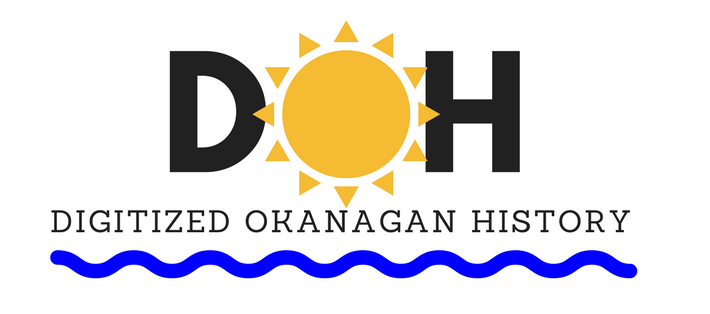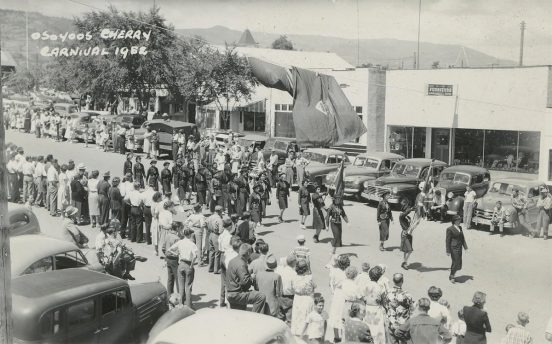Canada Day, called Dominion Day until 1982, has been celebrated in the Okanagan Valley for over a century. The holiday falls on July 1, and has a contested history due to its status as a marker of Canadian nationalism, patriotism, and colonialism. Here’s a brief timeline, accompanied by photographs from on this day in our collection:
- 1867: The British North America Act comes into effect, creating the country of Canada.
- 1879: Parliament recognizes Dominion Day (July 1) as an official public holiday.
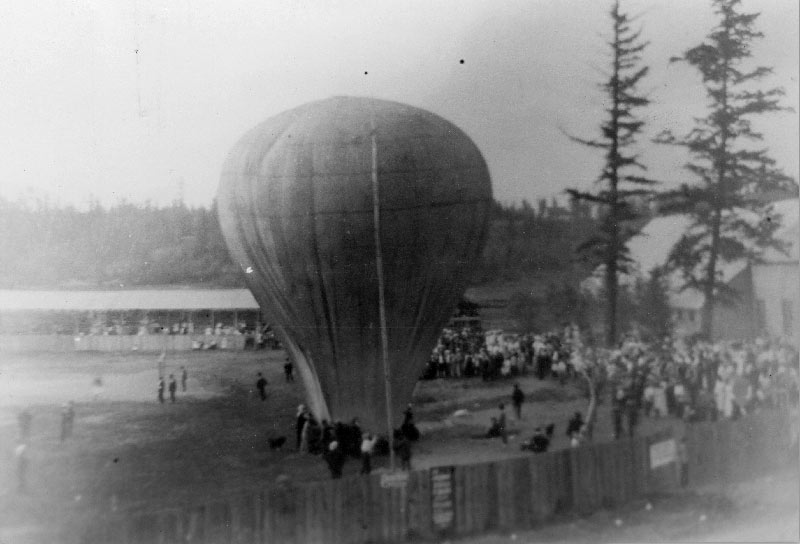
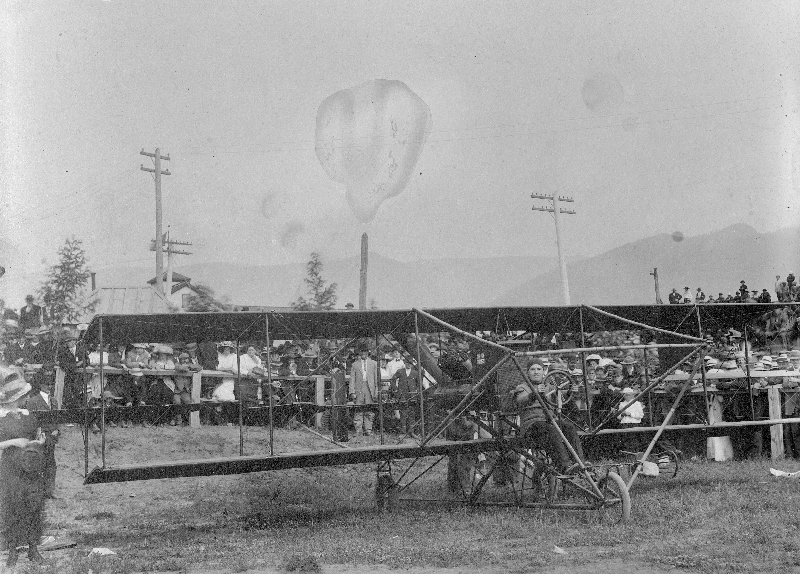
- 1917: The First World War overshadows the 50th anniversary celebrations of confederation.
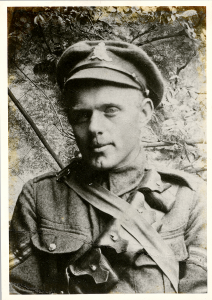
- 1923: On July 1, the Canadian government passes the Chinese Immigration Act, often called the “Chinese Exclusion Act.” Members of the Chinese Canadian community call the day “Humiliation Day” and protest the racist legislation.
- 1927: The federal government sponsors major Dominion Day celebrations in honour of the 60th anniversary of confederation.
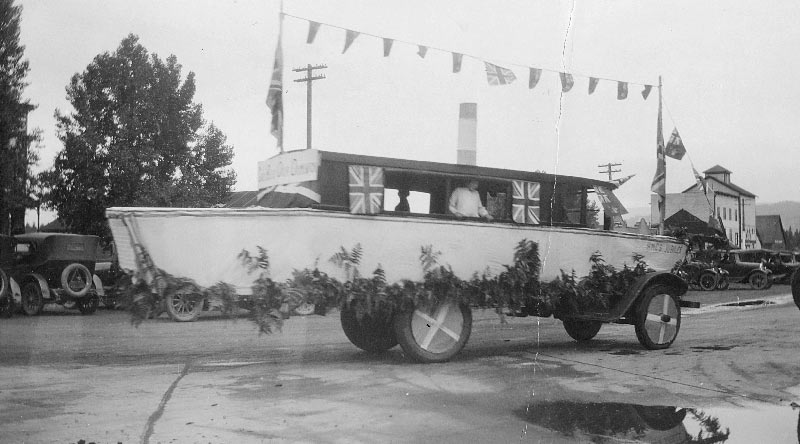
- 1949: The first Cherry Carnival parade is held in Osoyoos, B.C. on Dominion Day, involving a parade, pageant, and one-mile swim.
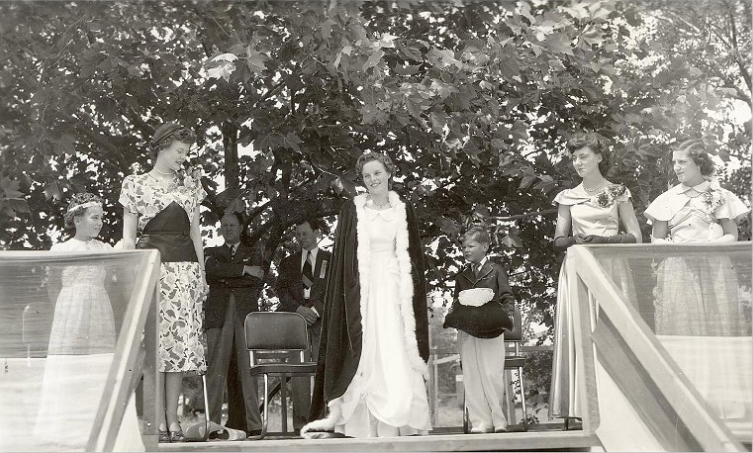
- 1950s: Dominion Day celebrations grow along with Canadian nationalism and desires to increase the country’s independence from Britain.
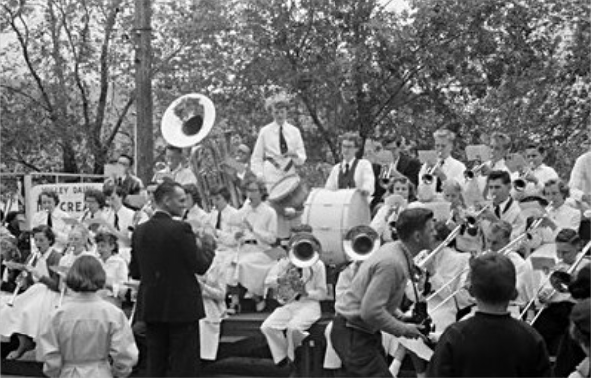
- 1967: Canada celebrates the 100th anniversary of confederation with thousands of special events. Chief Dan George (Tsleil-Waututh) gives his “Lament for Confederation” speech in Vancouver, silencing a crowd of 32,000:
Oh Canada, how can I celebrate with you this centenary, this hundred years? Shall I thank you for the reserves that are left to me of my beautiful forests? For the canned fish of my rivers? For the loss of my pride and authority, even among my own people? For the lack of my will to fight back? No! I must forget what’s past and gone.
- Late 1970s: Amidst the growing tide of Québécois nationalism, Canada amps up Dominion Day celebrations in support of national unity.
- 1982: The Canadian constitution is repatriated, and “Dominion Day” is officially changed to “Canada Day” for 1983 onward. This is a controversial decision that continues to ruffle feathers.
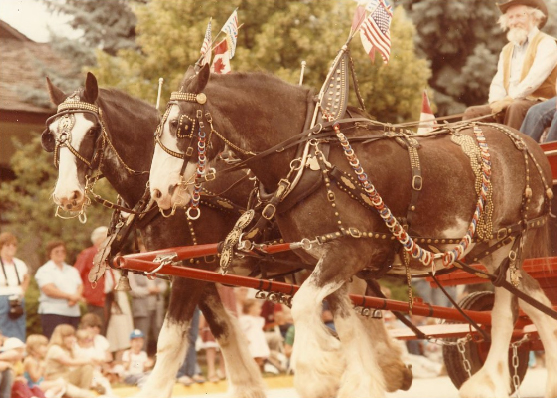
- 1992: Canada celebrates the 125th anniversary of confederation in the wake of the Oka crisis and the failure of the Meech Lake Accord. 1992 is also the 500th anniversary of Columbus’ arrival in the Americas. Chief Georges Erasmus (Dene), then head of the Assembly of First Nations, rejects the invitation to join the federal celebrations planning committee, emphasizing the importance of other issues:
“What are we going to celebrate? Are we going to celebrate that it took until 1959 before we could vote in this country? Are we going to celebrate that it took until 1968 that we could vote in Québec? … Are we going to celebrate the fact that our Aboriginal languages are not considered important enough in this country to be regarded in any legal way?… I don’t like what has happened in the last 500 years, 125 years… what are we going to do about the next 500 years? What are we going to do about the next 10 years? … I don’t think we have a solitary thing that we should be celebrating about unless we are going to do something different.”
- 2017: The Canadian government rolls out numerous initiatives to celebrate the 150th anniversary of confederation, which are met with extensive and varied resistance across the country, including the Rethink 150 project led by Syilx community members in the Okanagan.
July 1 has been a highly celebrated and hotly contested day in Canada and the Okanagan over the past 150 years. If we’ve whet your appetite and you’re curious to learn more, there are many great resources available:
- View all the photos in our collection from on this day in history.
- Read the full article “Contesting Canada Day: A Tradition of Engagement, Challenges and Change” by Matthew Hayday on Active History.
- Read the full article on “Canada Day” from the Canadian Encyclopedia.
- Read and fulfill the “150 Acts of Reconciliation for the Last 150 Days of Canada’s 150,” compiled by Crystal Fraser and Sara Komarinsky.
